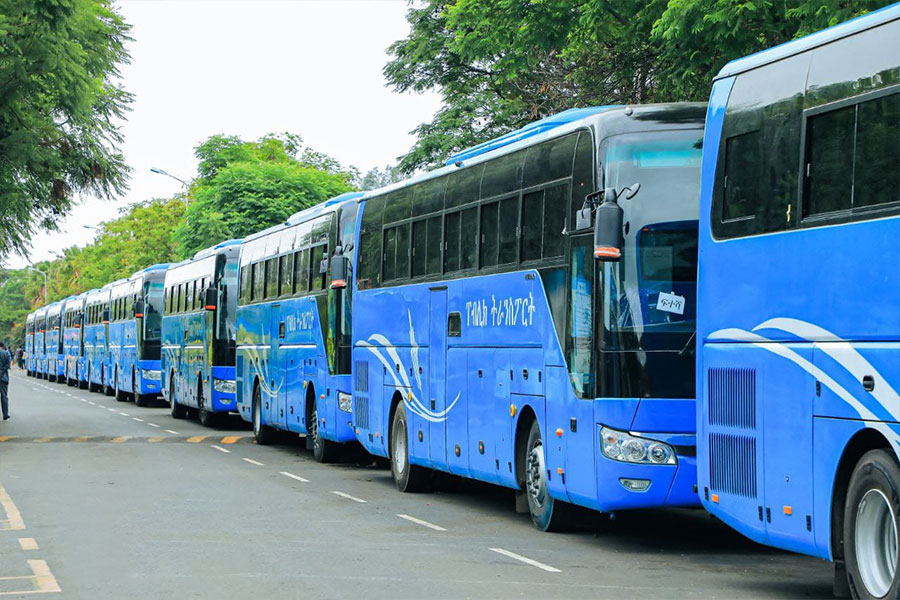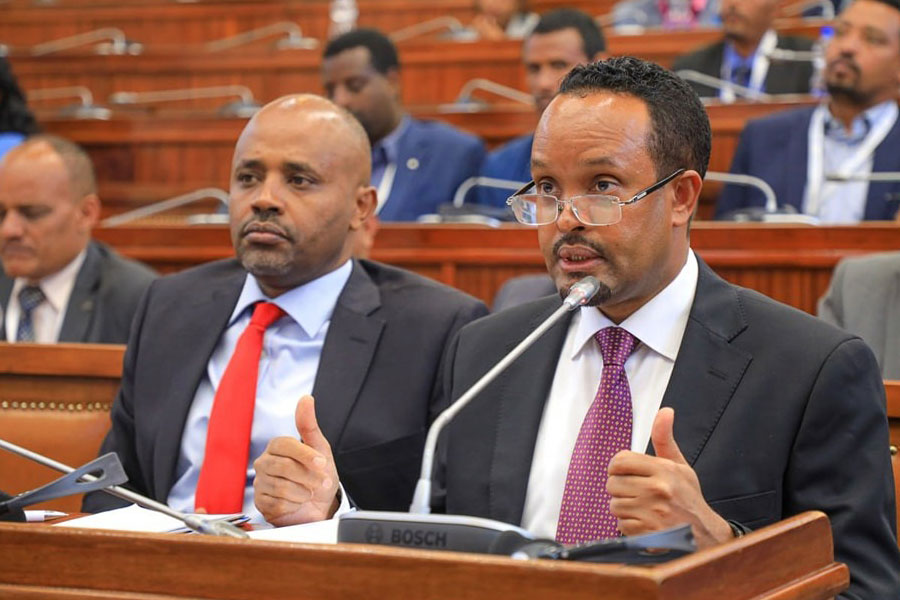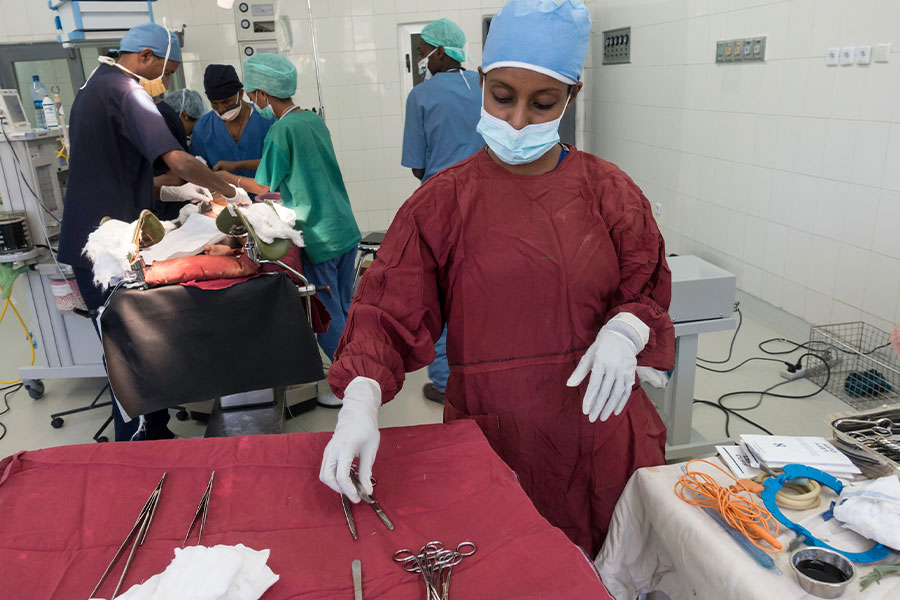
Commentaries | Jul 20,2024
Oct 16 , 2021
By Austine Sequeira
The COVID-19 pandemic has worsened the debt-stocks of most Sub-Saharan Africans. It has also created an excellent opportunity for resetting public programmes that include the public debt, domestic taxation and FDI policies, writes Austine Sequeira (PhD), independent consultant.
The COVID-19 induced economic crisis has kept heads of States and their Finance ministers busy firefighting to manage public debts. The world's GDP fell by 4.3pc in 2020, according to the World Bank, the sharpest contraction seen since the Great Depression.
Economic shrinkages have resulted in lower taxes and savings and retreat of investors from foreign direct investment (FDI). Governments have therefore resorted to debt financing. Inflows from the World Bank and IMF have added to public debt, although the debt service suspension initiative has helped the poorest and the most vulnerable countries save interest charges.
Emerging challenges to economic managers of the African developing countries, especially the underdeveloped countries, are enormous. Pre-COVID-19, these countries already had highly elevated levels of public debt, which has now been accentuated to a higher level without any means to extinguish it in the ensuing decade. External debt of Sub-Saharan African countries in 2020 amounted to 44pc percent of Gross National Income (GNI), one of the highest it has ever been. For many low-income Sub-Saharan countries, the external debt growth has outstripped the domestic economic growth rate.
While these percentages may not be a cause for worry compared to the public debt of developed countries like China and the United States, the debt service, especially non-multilateral debt service and defaults, may gallop in the near term. Bilateral credit, especially by the likes of China, India and Japan, could be the biggest casualties leading to a political confluence of ideologies. China has been the largest creditor of all low-middle income countries in the world, including the Sub-Saharan countries. One can imagine the socio-political influence of China in times of debt defaults in these countries. In this regard, the World Bank has already sounded warning bells for Angola, Pakistan, Maldives, and Sri Lanka.
Falling exports and equity inflows are two fundamental reasons to test the debt service capabilities of Sub-Saharan Countries. Fall in exports increases both capital and current account deficit and restricts the ability of a nation to service foreign currency debt. Multilateral initiatives like Heavily Indebted Poor Countries (HIPC), Debt Service Suspension Initiative (DSSI -G20) and Multilateral Debt Relief Initiative (MDRI) are seen to benefit these countries marginally in the long run. Nevertheless, it is a vicious circle. A high domestic growth rate is the key to success. Unfortunately, for the Sub-Saharan countries, this is easier said than done.
An increase in Gross Domestic Product (GDP) or GNI is a product of an increase in the domestic production of goods and services, which inter alia depends on capital formation, which in turn purely depends on equity inflows, corporate investment, and individual domestic saving rate. High tax rates and a bad tax regime has historically desisted global investors from investing in Sub-Saharan countries.
Net equity inflows (NEI) have been falling in low-middle income countries, especially for those in Sub-Saharan Africa. During the height of the pandemic and thereafter, China and India garnered more than half of global FDI inflows purely due to containment of the pandemic and relaxation of barriers to foreign investment. Lifting foreign exchange restrictions in major industries, piloting free trade zones, and diversifying FDI in the technology-related service sector were key to such high FDI inflows. Some African countries have replicated the success of these Asian nations and are currently enjoying the fruits. However, for the rest of Sub-Saharan Africa, it is the same old story of missed opportunities.
Another critical aspect that chains the domestic growth is domestic tax rates and tax administration. Recently the OECD announced a global deal to enforce a minimum tax rate of 15pc on corporates wherever they operate. One hundred thirty-six nations signed the deal, excluding Kenya, Nigeria, Pakistan, and Sri Lanka. The minimum tax rate is a new benchmark and has great significance when it comes into force in 2023. Governments may set whatever tax rate they want; however, the deep-pocketed manufacturers and service sector multinationals will scout investment destinations that peg their tax rates closer to 15pc. Tax administrators and regulators in this region must understand that a lower tax rate and the larger tax base is the only option for increasing domestic investment and GDP.
The COVID-19 pandemic has created an excellent opportunity for resetting public programs that include the public debt, domestic taxation and FDI policies to increase GDP and efficient public debt administration. The leadership of Sub-Saharan countries may either perish or prosper according to their capacity to benchmark their policies with successful developing nations elsewhere. The debt created for themselves will grow bigger and bigger, severely restricting their ability to steer the economy.
PUBLISHED ON
Oct 16,2021 [ VOL
22 , NO
1120]


Commentaries | Jul 20,2024

Fortune News | Aug 13,2022

Fortune News | May 23,2020


Fortune News | Aug 23,2025

Radar | Feb 09,2019

Fortune News | Feb 11,2023

Radar | Mar 05,2022

Featured | Sep 11,2020

Sunday with Eden | Aug 08,2020

Photo Gallery | 178075 Views | May 06,2019

Photo Gallery | 168285 Views | Apr 26,2019

Photo Gallery | 159041 Views | Oct 06,2021

My Opinion | 137044 Views | Aug 14,2021
Commentaries | Oct 25,2025

Dec 22 , 2024 . By TIZITA SHEWAFERAW
Charged with transforming colossal state-owned enterprises into modern and competitiv...

Aug 18 , 2024 . By AKSAH ITALO
Although predictable Yonas Zerihun's job in the ride-hailing service is not immune to...

Jul 28 , 2024 . By TIZITA SHEWAFERAW
Unhabitual, perhaps too many, Samuel Gebreyohannes, 38, used to occasionally enjoy a couple of beers at breakfast. However, he recently swit...

Jul 13 , 2024 . By AKSAH ITALO
Investors who rely on tractors, trucks, and field vehicles for commuting, transporting commodities, and f...

Oct 25 , 2025
The regulatory machinery is on overdrive. In only two years, no fewer than 35 new pro...

Oct 18 , 2025
The political establishment, notably the ruling party and its top brass, has become p...

Oct 11 , 2025
Ladislas Farago, a roving Associated Press (AP) correspondent, arrived in Ethiopia in...

Oct 4 , 2025
Eyob Tekalegn (PhD) had been in the Governor's chair for only weeks when, on Septembe...

Oct 25 , 2025 . By YITBAREK GETACHEW
Officials of the Addis Abeba's Education Bureau have embarked on an ambitious experim...

Oct 26 , 2025 . By YITBAREK GETACHEW
The federal government is making a landmark shift in its investment incentive regime...

Oct 27 , 2025
The National Bank of Ethiopia (NBE) is preparing to issue a directive that will funda...

Oct 26 , 2025 . By SURAFEL MULUGETA
A community of booksellers shadowing the Ethiopian National Theatre has been jolted b...